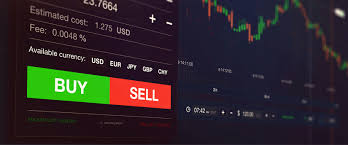Mastering Forex Trading Strategies, Tools, and Resources

Mastering Forex Trading: Strategies, Tools, and Resources
Forex trading, the act of exchanging one currency for another in the global market, has gained immense popularity over the years. Whether you are a seasoned trader or just starting your journey, it is essential to understand the complexities of this financial market. With the right tools and strategies, anyone can succeed in forex trading. If you are looking to enhance your trading experience and boost your profits, consider visiting forex trading website https://kuwait-tradingplatform.com/. In this article, we will delve into the crucial aspects of forex trading, suitable for all levels of traders.
Understanding the Forex Market
The Foreign Exchange (Forex) market is the largest financial market globally, boasting a daily trading volume exceeding $6 trillion. Unlike stock markets that operate within set hours, forex is a decentralized global market open 24 hours a day, five days a week. Traders can buy, sell, and exchange currencies at any time, making it accessible and flexible.
Key Components of Forex Trading
Currency Pairs
In forex trading, currencies are quoted in pairs, such as EUR/USD or GBP/JPY. The first currency in the pair is the base currency, and the second is the quote currency. The price of the pair reflects how much of the quote currency is needed to purchase one unit of the base currency. Understanding how to read and interpret these pairs is fundamental to forex trading.
Leverage
Leverage is a tool that allows traders to control larger positions than their initial investment. For example, with a 100:1 leverage, a trader can control a $10,000 position with just $100 in their trading account. While leverage can magnify profits, it also increases the risk, making proper risk management essential for success.
Bid and Ask Price
The bid price is the price a trader can sell a currency at, while the ask price is the price at which a trader can buy. The difference between the two prices is known as the spread. Understanding the bid and ask prices is crucial for executing trades effectively.
Strategies for Successful Forex Trading
Technical Analysis
Technical analysis involves studying historical price charts and utilizing various technical indicators to forecast future price movements. Traders often use tools such as Moving Averages, Relative Strength Index (RSI), and Fibonacci retracement levels to make informed trading decisions.

Fundamental Analysis
Fundamental analysis focuses on economic indicators, central bank decisions, and geopolitical events that can impact currency values. Traders who adopt this strategy pay attention to news releases, economic reports, and political stability to understand currency fluctuations.
Trading Psychology
A trader’s mindset can significantly affect their trading performance. Emotions like fear and greed often lead to rash decisions and can derail a well-thought-out trading strategy. Successful traders prioritize discipline, patience, and a strong mental focus to navigate the market’s ups and downs.
Choosing the Right Forex Broker
Selecting a reliable forex broker is paramount for a successful trading experience. Key factors to consider include regulatory compliance, trading platform features, spreads, and customer support. A broker should also provide educational resources to help improve your trading skills. Conduct comprehensive research to find a broker that fits your trading style and goals.
The Role of Technology in Forex Trading
Technology has revolutionized forex trading, making it more accessible than ever. Trading platforms offer user-friendly interfaces and powerful tools for analyzing market trends, executing trades, and managing risk. Additionally, automated trading systems and algorithms can help traders identify opportunities and execute trades without manual intervention.
Mobile Trading
With the rise of smartphones, mobile trading has become increasingly popular. Traders can monitor their positions, execute trades, and access market news on the go. Many brokers now offer mobile applications that replicate the features of their desktop platforms, providing flexibility and convenience.
Risk Management in Forex Trading
Effective risk management is crucial for long-term success in forex trading. Traders should determine their risk tolerance and set appropriate stop-loss orders to minimize potential losses. Diversifying trading strategies and currency pairs can also help mitigate risks.
Continual Learning and Development
The forex market is ever-evolving, and successful traders are those who continually seek to improve their knowledge and skills. Participate in webinars, read trading literature, and engage in online forums to expand your understanding. Consider practicing on demo accounts to refine your strategies without risking real capital.
Conclusion
Forex trading presents both opportunities and challenges. With a solid understanding of the market, effective strategies, and the right tools, you can enhance your trading experience and work towards achieving your financial goals. Remember, success in forex trading comes with practice and patience. Equip yourself with the right knowledge, and you’ll be well on your way to mastering the forex market.
